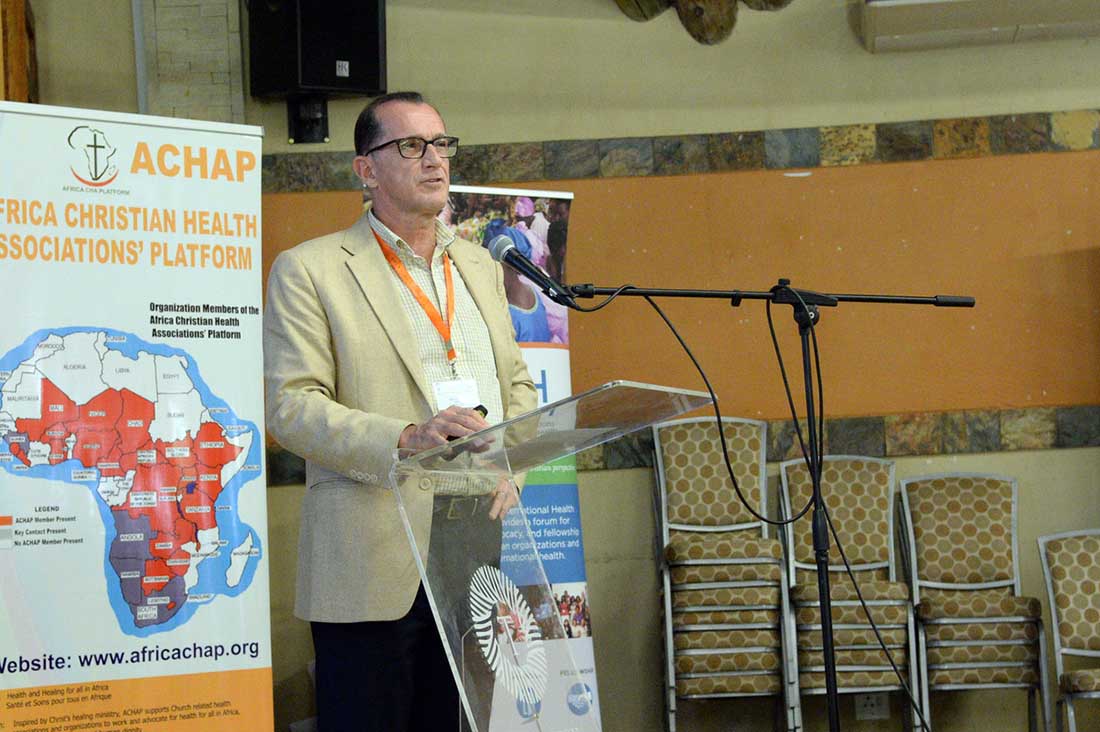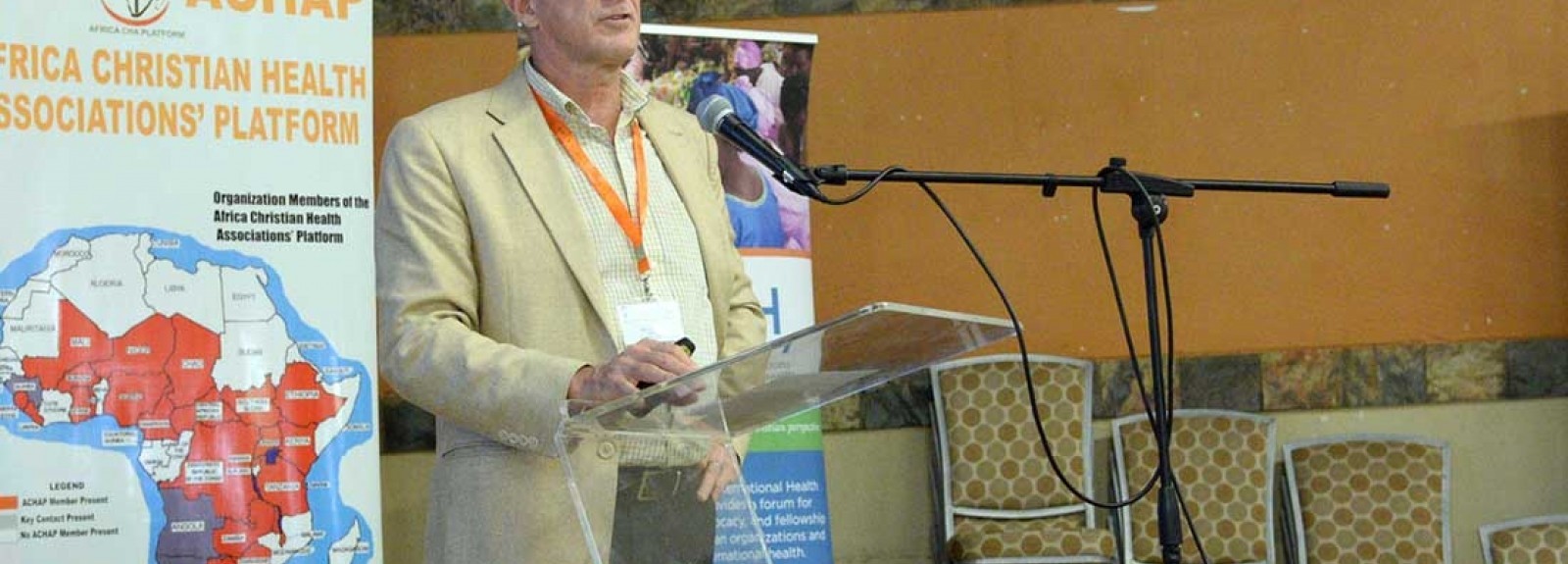
By Kara Eberle
IMA World Health
Maseru, LESOTHO—If you’re sick in Ghana, you’ll likely find yourself in a church-owned hospital. If you know someone from Malawi, there’s a good chance he or she was born at a faith-based health center. And in war-torn South Sudan, some of the only health care facilities that remain in the country have roots in the church.
The value of faith-based health care is well-known throughout Africa, but is there hard evidence to back up the role these organizations play? Faith-based leaders and global health experts across the continent are working to make sure there is.
“It’s not enough to say we’re doing good,” said Dr. Alfredo L. Fort, Senior Monitoring and Evaluation Advisor for IMA World Health, a faith-based nonprofit that partners with other organizations to serve vulnerable people around the globe. “The world is increasingly looking for evidence.”
Networks known as Christian Health Associations began near the turn of the 20th century and were among the first health care services offered in Africa. Today, the World Health Organization estimates that at least half of the continent’s health care is provided by faith-based groups.
The disconnect between value and evidence in these organizations often arises because of a lack of funding, lack of training, lack of equipment and lack of staff needed for data collection.
Fort shared his thoughts during a panel discussion held during the 8th Biennial Africa Christian Health Associations Platform Conference in Maseru, Lesotho. The gathering marked the 10th anniversary of the convening body of Christian Health Associations throughout Africa. The conference focused on how the work of faith-based organizations can strengthen health systems and impact achieving the Sustainable Development Goals. The session was moderated by Frank Dimmock, a consultant for IMA World Health who has spent 35 years serving the church in Africa as a Presbyterian Church (USA) mission co-worker.
“Christian-owned facilities in Malawi existed before government facilities,” said Dr. Titha Dzowela of the Christian Health Association of Malawi. “Missionaries established the first hospital in Malawi.”
The faith-based health centers are in the hardest-to-reach places. They are often cut off during rainy seasons or have nearly inaccessible roads. And most people in these places are vulnerable and very poor, Dzowela said.
He presented facts and statistics to show how vital CHAM is in Malawi: 25 percent of ambulances in the country belong to CHAM, 42 percent of bed capacity in the public health sector are in CHAM facilities and 100 percent of the health services on the two islands in Lake Malawi are provided by CHAM.
“The evidence is right in front of us,” he said. “CHAM is still vital to Malawi.”
But the numbers often don’t tell the whole story. Qualitative evidence also needs to be examined.
How remote are the health facilities? What is the mission of the facility? Were the services holistic? Each of those questions need to be answered when compiling data, Fort said.
Multi-tiered evidence is more important now than ever, because donors are asking for it. If organizations can’t present thorough evidence, they could be overlooked for much-needed funding.
Fort said data collection needs to be emphasized in CHAs from the top to the bottom. Organizations need to be prepared to put some money toward monitoring and evaluation, proper equipment and staff training.
“Investing in people’s health is a strategy to alleviate poverty,” said Deb McFarland, Associate Professor in the Department of Global Health and the Department of Health Policy and Management at the Rollins School of Public Health of Emory University. “We need to strengthen health systems.”
As Mirfin Mpundu, the Executive Director of the Ecumenical Pharmaceutical Network, said it’s about ensuring everyone throughout Africa can get medical care when they need it.
“Access to medicine is a basic human right,” Mpundu said. “Everyone should be able to get medicine they need at the right time and at the right place.”


